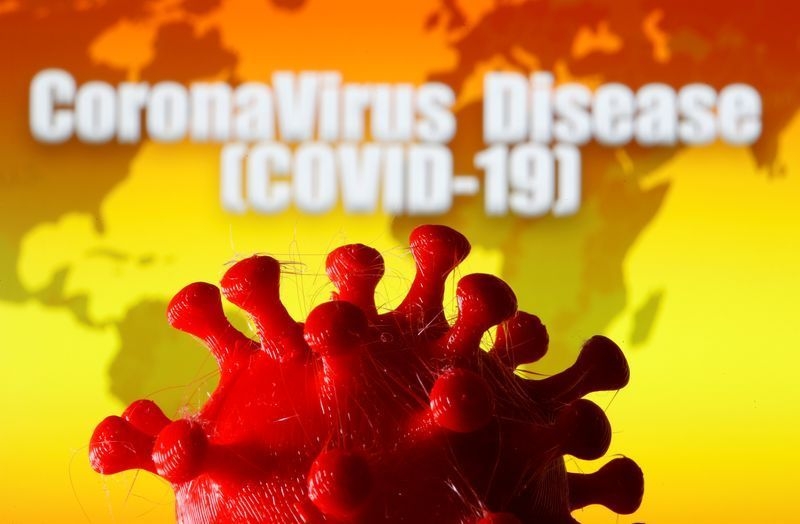
The following is a roundup of some of the latest scientific studies on the novel coronavirus and efforts to find treatments and vaccines for COVID-19, the illness caused by the virus.
 |
The following is a roundup of some of the latest scientific studies on the novel coronavirus and efforts to find treatments and vaccines for COVID-19, the illness caused by the virus.
Higher death risk found if COVID-19 causes changes to heart
A new study may help identify which COVID-19 patients with signs of heart injury are at higher risk for death. Doctors looked at 305 hospitalized patients with elevated levels of troponin, a protein released when the heart has been injured. They reported on Monday in the Journal of the American College of Cardiology that among these patients, the increased risk for death was statistically significant only when changes in the heart's size, shape, structure, and function were seen during an echocardiogram. Death rates were 5.2% in patients without troponin in their blood, 18.6% when troponin was high but hearts looked normal, and 31.7% in those with high troponin plus so-called heart remodeling. When other risk factors were considered, high troponin was only tied to death in patients who also had cardiac remodeling. COVID-19 patients with high troponin should undergo echocardiography "to guide further diagnostic testing and treatment strategies," coauthor Dr. Gennaro Giustino of Icahn School of Medicine at Mount Sinai in New York City told Reuters. "Patients with a bad echo need much closer follow-up and more aggressive treatments," said Dr. Carl Lavie of Ochsner Health in New Orleans, who coauthored an editorial on the study.
COVID-19 may be top cause of death among young adults in some U.S. regions
In some areas of the United States during COVID-19 outbreaks, the new coronavirus likely became the leading cause of death among adults aged 25-44, researchers say. Using data from the U.S. Centers for Disease Control and Prevention (CDC), they analyzed deaths from any cause in that age group from March through July, along with drug overdose deaths during the same period in 2018, the most recent year for which data are available. In three of 10 regions of the country, as identified by the U.S. Department of Health and Human Services, deaths exceeded 2018 unintentional opioid overdose deaths during at least one month of the pandemic, researchers reported on Sunday on medRxiv, ahead of peer review. They were Region 2 (New York, New Jersey), Region 6 (Arkansas, Louisiana, New Mexico, Oklahoma, Texas), and Region 9 (Arizona, California, Hawaii, Nevada). It is not clear which states account for the most deaths in each region, coauthor Dr. Jeremy Faust of Harvard Medical School in Boston told Reuters. But data not included in the paper suggests that in New York, New Jersey, and Louisiana more people aged 20 to 39 "were dying of COVID-19 than opioids usually kills during the same time frame there," he said. "Usually, opioids are the leading cause of death in these demographics all over the country."
Antibiotic overuse may be rising during pandemic
Unnecessary use of antibiotics, which can lead to harmful bacteria developing resistance to the life-saving medicines, has been on the rise during the coronavirus pandemic, according to new research. Data from 84 large U.S. Veterans Affairs facilities collected for the period of January through May over the last six years show that antibiotic use at those hospitals jumped during the initial COVID-19 surge, reversing a four-year downward trend. While antibiotic use fell steadily from 2015 to 2019, in 2020 it reached "levels not seen since 2016," Dr. Matthew Goetz of the VA Greater Los Angeles Healthcare System said on Friday during an annual meeting of infectious disease experts held virtually this year. While use of antibiotics was not directly linked to the number of COVID-19 patients being treated in each facility, "the pandemic provided new challenges to hospital systems that weren't prepared to manage it - from an onslaught of patients to a shortage of rapid diagnostic tests," Goetz said. The findings point to a weakening of antibiotic stewardship practices, he added.
(Source: Reuters)





